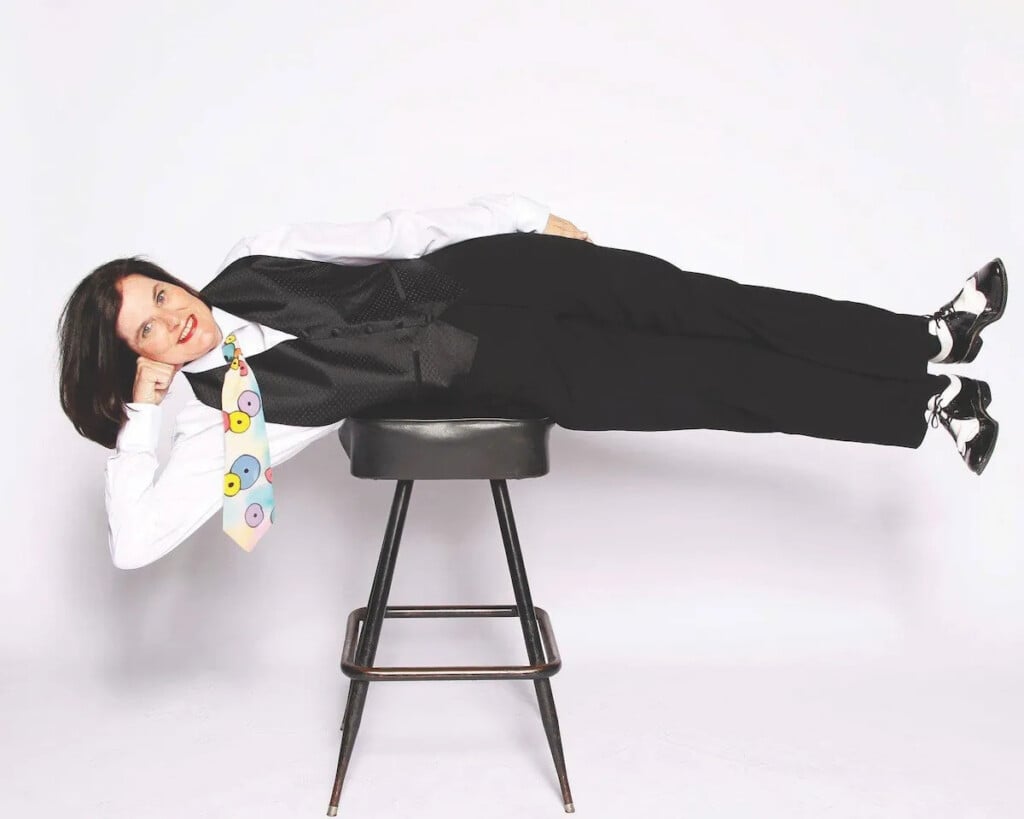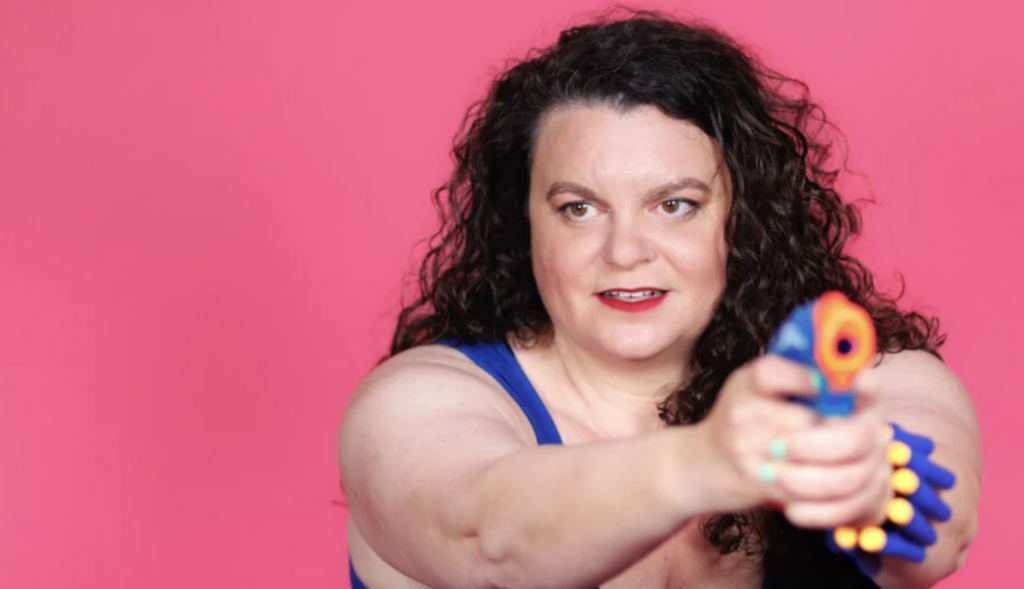Actor Yaegel T. Welch on touring with To Kill a Mockingbird and using classic narratives as a platform for change
Harper Lee’s To Kill a Mockingbird is a classic novel with many different stylings across film and stage, with a recent addition by Aaron Sorkin—known for his writing on award-winning movies The Social Network and The Trial of the Chicago 7—taking the story to new heights.
Sorkin’s production opened on Broadway in late 2018 with staging by Bartlett Sher and has received positive critical reception from its onset. The show was nominated for nine Tony awards and holds the record for the highest-grossing American play in Broadway history.
Now, Kansas City audiences will have the chance to see To Kill a Mockingbird at the Music Hall Oct. 24-29th.
The show takes place in Alabama in 1934 and tells the story of lawyer Atticus Finch who defends Tom Robinson, a falsely accused Black man, in a prejudiced court. This thematic telling of childhood innocence juxtaposed alongside racial injustice is one of the most well-known stories in American literature and has been simultaneously celebrated and rejected by the masses since it was published in 1960.
The reworked production upholds the authenticity of the original story and breathes new life into the politics that reflect the current state of racial tension in the US.
The staging brings adult actors as the children—Scout, Jem, and Dill—bringing a more mature perspective to the events in Maycomb. Additionally, Sorkin’s writing gives further depth to the characters Tom Robinson and Calpurnia, creating a more nuanced approach to the story than the novel offers.
The cast includes Richard Thomas (Atticus Finch), known for his appearances in The Waltons and Ozark, alongside Mary Badham (Mrs. Henry Dubose), the original Scout Finch from the 1962 movie.
Also taking the stage is actor Yaegel T. Welch (Tom Robinson), who joined the production in 2019 and has experienced different evolutions of the play over the past four years. Welch’s previous acting credits include a Broadway run of The Play That Goes Wrong and appearances on television series The Blacklist, Madame Secretary, and Elementary.
The Pitch recently sat down with Welch to discuss the socio-political relevance of this adaptation, differences from the novel, and the story’s evolution throughout a lifetime.
The Pitch: Were you exposed to the novel growing up? Do you feel that you have a different perception of the message as an adult?
I first read To Kill a Mockingbird in junior high school. I think what I saw then were mainly the relationships with the kids and the coming-of-age story with Scout. After reading it again as an adult, obviously, racial tension was a thing that popped out. I think as a kid it’s background noise, not understanding the severity of it all. As an adult, you really get to the injustice of what happens to the man who is falsely accused and ultimately dies because of social injustice and racial inequities in society.
How did Sorkin flesh out the characters from Lee’s original novel? Are there any characters that have been revisited?
Tom Robinson and Calpurnia, the family housekeeper, have both been given a lot more agency and Sorkin expanded both of those roles. Now we know a lot more about what’s going on in their mind and a little bit more about who they are.
In the novel, you don’t really get to know these two people. They are sort of just metaphors for many different African-American people. In the play, they are humanized a lot more and you get to know more about them specifically and hear their voices, particularly Calpurnia. There’s a lot more recognition of the African-American community in this particular style of storytelling.
Is there any part of the role or the show that hits home time and time again?
There’s a line that the character Dill says—he says it very innocently as he and Scout have a little childhood scuffle. He says, “The things you can’t see are scarier than the things you can.” I think that’s a big message and overarching theme for this particular novel. I would say that’s the same thing that’s happening in the town with racial inequities—the two groups don’t really know each other so there’s a general fear of each other. We’re probably way more alike than we are different, but because we don’t know that I think there’s an ingrained fear. It’s really unfortunate.
How has the show evolved since you first joined the production in 2019?
It’s totally evolved, particularly after 2020 with Black Lives Matter and the murder of George Floyd. Our playwright had initially written that Tom was shot in the back five times because he thought [the novel] was too hyperbolic—Harper Lee originally wrote that he was shot 17 times. After seeing what happened during the murder of George Floyd that spring, our playwright recognized it wasn’t too extreme and it wasn’t hyperbolic. So, he made it 17 times in the play which is a clear statement that you don’t have to shoot a one-armed man 17 times, nor would a one-armed man be climbing a fence.
Audiences also came back way more invested in the social injustices within the play that were already on the surface. I think audiences tuned in to the story a lot more because of what we had experienced during the early years of the pandemic.
Do you feel like audience perception changes depending on where you are touring?
For sure. Some communities that we visit have a history of racism and deal with it in ways that are still visible and palpable today. But, there are other communities where racism is more covert. I think racism exists in all parts of America. Racism, sexism, Islamaphobia, homophobia. I mean, it’s all here. It’s not that any part of the country is better about it, it’s just more covert so people don’t have to address it in the same way every day.
When certain issues come up in parts of the play, there’s a lot more call and response because people have experienced or remember in the not-so-distant past where these things happened. There are also places where it hasn’t been on the surface so people are able to be a lot more separate and they don’t have to address those social or cultural differences as regularly, and they are responding to the tale in a more intellectual way.
America is big. Everyone is having a different experience and that’s why we’re divided on so many different things. People in New York are not experiencing the same America as somebody in Wyoming.
Given the current political and social relevance, you’ve previously mentioned that there isn’t a pressure to fulfill this role, but more a sense of urgency to tell the story. Can you tell me more about what it means to be a part of this show and how you have been able to use it as a platform?
As an artist, sometimes you can be an artist for hire who says yes to anything offered just so you have a job. Occasionally, a job comes around that aligns with your social and political beliefs and aspirations of what you want to leave the world with.
To Kill a Mockingbird is an antiquated tale in many ways. But for the time it came out, it was revolutionary. So many people became lawyers, social justice warriors, and teachers because of this story. Admittedly, it’s a story of racism told through the lens of a young, white girl and how it affects them. It was a tool for the revolution because so many people left it wanting to be like Atticus Finch, this fictional lawyer. Similarly, I think that people need to hear this story because it’s one tool that we have at our fingertips to make people aware of racial inequities and social injustices that have been happening.
This story was written about a trial in 1934, published in the 1960s, and the same unlawful killing of Black and Brown people is still happening today. The story still has relevance and we still need to tell the tale. As an artist, it gives me a platform to be as honest as possible and make sure I’m giving my all every night. Being as empathetic, honest, and truthful as I can with my character allows me to give people the most authentic experience possible to understand what life was like for Black people in 1934.
Hopefully, this will inspire them to have a strong sense of empathy and come out of this play with a greater sense of empathy and understanding for differences—whether it be social, cultural, gender, sexuality, or religion. If the audience leaves empathizing with others’ injustices and wants to act on it, then I really feel like I’ve been able to be a part of a movement.
To Kill a Mockingbird will run Oct. 24-29th at Kansas City’s Music Hall. Tickets can be purchased on the American Theatre Guild’s website.







